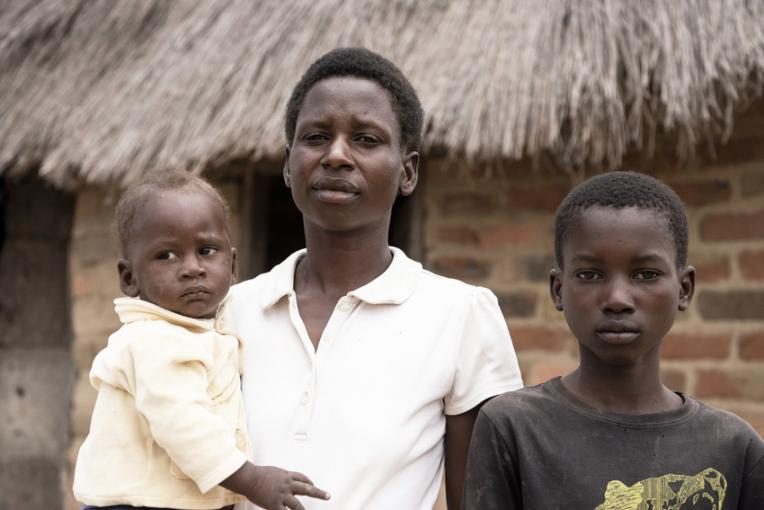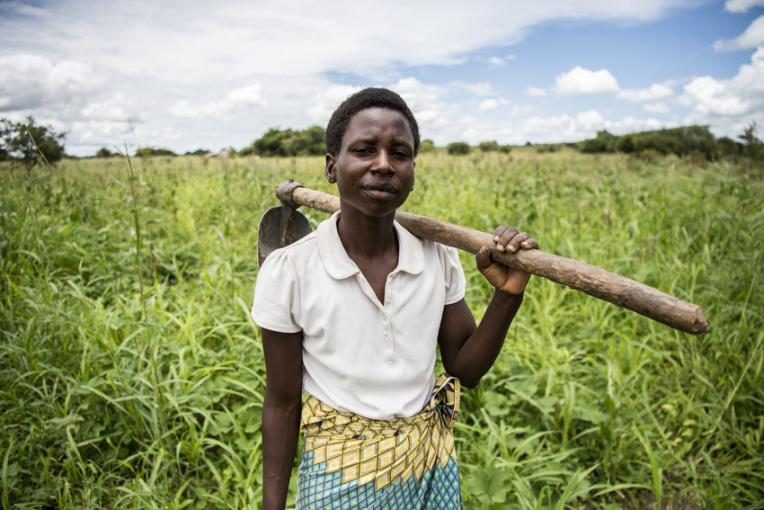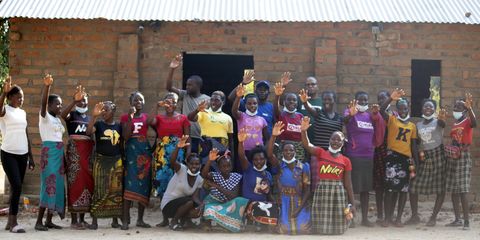Fostina from Zambia describes the daily struggle she faces to provide food for her family in the face of drought and unpredictable rainfall.

Southern Africa is on the front line of the global climate crisis. It’s warming at twice the global rate while drought and delayed rainfall have caused harvests to fail for the last 3 years. In Zambia, 2.3 million people currently don’t have regular access to food.
For Fostina, 27, the situation is critical. She lives in Zambia’s Central Province with her 2 children and 20 extended family members, including her parents and siblings. Her village is remote with no electricity or running water. The family survives by growing maize and selling milk.
This year Fostina expects the harvest to fail. Southern Africa has had only one normal growing season in the last 5 years.
“Unfortunately, the rains were erratic and the plants failed,” Fostina explains.
Crop failures lead to food shortages
“I was left with no crops to sell to raise money to buy maize. Even worse, the cost of maize drastically went up which makes it harder for our family to afford food.

“Before, we used to eat 2 good meals a day. Now, we only have one.”
The early maize Fostina planted failed to germinate. “Following the late onset of rains this year we missed the period to buy new seed for replanting. Instead, we have planted butternuts with the hope of getting a good harvest that we can sell to buy other food to eat,” Fostina says.
Fostina’s family are focusing on diversifying their farming. However, families who can’t do this turn to other methods such as chopping down trees and turning them into charcoal.
Plan International Zambia Country Director Ramin Shahzamani explains, “This is a vicious cycle. It doesn’t rain during the traditional rainy season and then when late rains do come, they are so heavy they cause soil erosion which further reduces crop production. So, a lot of families are turning to charcoal burning which releases carbon dioxide, further impacting the climate.”
Children’s education at risk
Fostina’s main concern is the children. “We have adolescent children who are in high school and we only manage to pay for one. Because of hunger, it is difficult to justify using money to pay for school instead of food. If hunger continues, people will completely stop schooling.”
“If hunger continues, people will completely stop schooling.”
Fostina
Fostina and the other adults in the family can’t afford to buy school uniforms for children in primary school, despite education for that age being free.
“Some children look weak because of hunger. Right now we are living with a lot of fear because of the likelihood of rains stopping before we finish cultivating maize. If that is the case we will die of hunger.”
Support for vulnerable families
Plan International is working alongside the government to improve the lives of families like Fostina’s. We are distributing bags of maize to families living in Central Province.
Food was distributed to 4,480 households during January 2020. This is in addition to a school feeding programme we have introduced which provides children in 6 schools with 3 meals per week. We are also implementing measures to keep children, especially girls, safe.
But as Shahzamani says, “There is still a huge unmet need. Plan International is calling on all humanitarian actors to recognise the specific needs and risks facing adolescent girls. And we’re calling on donors to urgently scale up funding to help the communities hardest hit by the hunger crisis.”


